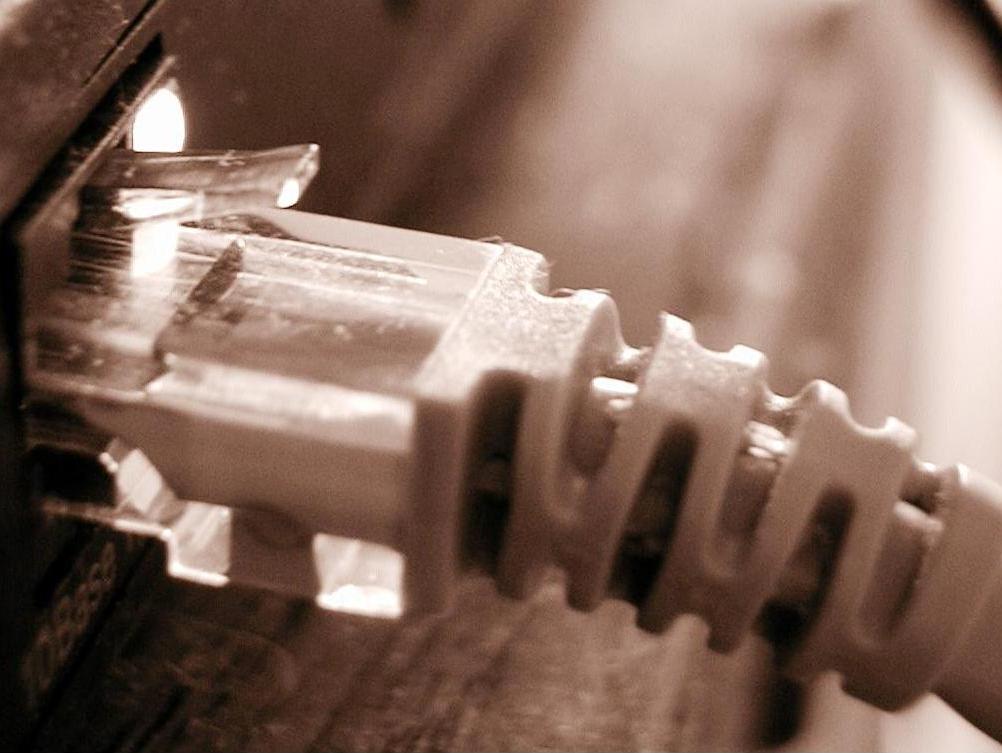Why we must kill the Digital Economy Bill
You've got two weeks to wake up your MP

With crushing inevitability, the House of Lords did nothing to stop the deeply flawed Digital Economy Bill yesterday - and that means a badly written and potentially disastrous new law is nearly on the statute books. We have just two weeks to stop it - and stop it we must.
Between now and the election, the Government will do its very best to push the Digital Economy Bill through Parliament. It's now in a period called the wash-up, where backroom negotiations will tweak the Bill in order to keep various vested interests happy.
In essence, that means all kinds of scary stuff could be added to the Bill without any real scrutiny. Even if nothing's added, though, it's going to be a terrible, terrible thing for the internet in the UK.
Why is it bad?
This isn't about file sharing or fighting for your right to download dodgy MP3s. It's about much more than that.
It's about stopping a law that could bring libel-style censorship to UK ISPs, forcing them to block the next YouTube on copyright owners' say-so - with no penalties for organisations making misguided or malicious accusations. It's not hard to imagine politically awkward sites such as Wikileaks ending up on the blocklist too.
It's about stopping a law that would make cafes and libraries responsible for their users' activities, bringing an end to open Wi-Fi.
Sign up to the TechRadar Pro newsletter to get all the top news, opinion, features and guidance your business needs to succeed!
It's about stopping a law so badly written that it could shut down an entire mobile phone network for a dodgy 3G download.
It's about stopping a law that enables anyone to rip off photographers by removing image data and claiming they couldn't find out who took the photo.
It's about stopping a law that penalises the law-abiding majority - by upping ISP costs and therefore everyone's broadband bills - for the actions of a tiny minority.
It's about heeding the concerns of crazed anti-copyright hippies such as the Metropolitan Police, the Serious and Organised Crime Agency and MI5.
Creative industries dominate argument
More than anything, it's about democracy. Despite the Digital Britain consultation arguing that beheading for Beyoncé downloaders wasn't a brilliant idea, the Digital Economy Bill has become dominated by a vocal minority, the so-called creative industries, with other equally important voices marginalised or ignored completely. The more biased the Bill becomes, the more determined the Government appears to rush it onto the statute books.
As far as the copyright industries are concerned, the whole thing's a done deal: in a leaked email obtained by Boing Boing, BPI Director of Public Affairs Richard Mollet points out that the Bill will probably go through while everybody's attention is elsewhere. "Come the week of Second Reading (29th March) the main political focus is likely to be on the Finance Bill," he writes, "the Budget having been announced on the 24th".
That will definitely be the case if we don't do something about it. This is a bad Bill and it's going to become bad law - but there's still time to stop it.
Ironically the same proximity to the election that's helping rush this Bill onto the statute books can also help destroy it, because when a hung parliament is a distinct possibility every single vote matters. Why not make it abundantly clear to your MP that this is a vote loser?
-------------------------------------------------------------------------------------------------------
Liked this? Then check out Digital Britain: the verdict
Sign up for TechRadar's free Weird Week in Tech newsletter
Get the oddest tech stories of the week, plus the most popular news and reviews delivered straight to your inbox. Sign up at http://www.techradar.com/register
Contributor
Writer, broadcaster, musician and kitchen gadget obsessive Carrie Marshall has been writing about tech since 1998, contributing sage advice and odd opinions to all kinds of magazines and websites as well as writing more than twenty books. Her latest, a love letter to music titled Small Town Joy, is on sale now. She is the singer in spectacularly obscure Glaswegian rock band Unquiet Mind.
